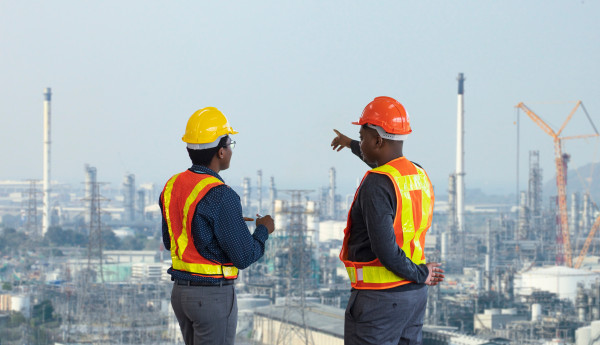Africa Finance Corporation (AFC) (www.AfricaFC.org), the continent’s leading infrastructure solutions provider, is arranging a project development facility to support Africa’s largest gas-to-methanol plant, with the aim of significantly reducing CO2 emissions by offsetting flaring of natural gas and turning it instead into a valuable chemical for solvents, paints, plastics and car parts.
The project in Akwa Ibom, Nigeria, targets producing an initial 1.8 million tonnes per annum (MTPA) of methanol, diversifying the local economy and generating over 18,000 jobs. AFC has committed development stage financing to de-risk the project and enable it reach financial close, along with providing financial advisory services to the sponsors to raise the required project financing and support successful delivery of this transformational project. The venture is led by Blackrose, a project development and investment firm, and co-developed with the International Finance Corporation (IFC), the private sector arm of the World Bank Group, which are co-financing alongside AFC.
Most of Nigeria’s 200 cubic feet of natural gas reserves – the largest in Africa, accounting for a third of the continent’s total – remain unexploited, presenting a substantial opportunity to bolster the country’s natural resource beneficiation and enhance climate resilience. Gas flaring has been a significant hazard for local people since the beginning of oil production, emitting chemicals linked to respiratory and other health issues.
“This innovative project is transforming an immense negative for Nigerians into a very significant positive by harnessing this country’s abundant gas reserves as a unique opportunity to become a global leader in low-carbon manufacturing and energy systems,” said Samaila Zubairu, President and CEO of AFC. “This strategic collaboration with Blackrose and IFC underscores our dedication to supporting Africa’s pragmatic transition to net zero, emphasising rapid industrialisation, local job creation, and socio-economic advancement through the production of methanol, a versatile and low-carbon industrial feedstock.”
The project will be implemented in two phases, each with an installed capacity of 1.8 MTPA. Phase one will produce low-carbon methanol, an industrial chemical essential to the manufacturing of hundreds of everyday products, including solvents for the pharmaceutical industry, paints, plastics, automobile parts and construction materials. This is also a lower emissions alternative fuel used in hard-to-decarbonise sectors such as shipping and industrial boilers, with applications for cooking stoves and fuel cell solutions. Phase two of the project will expand methanol production to include ammonia, a critical feedstock for fertiliser production.
Methanol is produced using synthetic gas predominantly from coal and natural gas. By utilising best-in-class energy efficient production methods, the plant will achieve a much lower net carbon intensity compared to traditional methanol synthesis techniques, while also reducing CO2 emissions by converting gas that would otherwise have been flared. Additionally, the project incorporates plans for carbon capture and offset strategies as well as the use of external hydrogen to bring targets even closer to carbon neutrality.
Once operational, the gas-to-methanol plant is expected to generate more than 2,500 local jobs during the construction phase and a further 16,000 jobs indirectly by catalysing manufacturing activity and economic diversification.
Distributed by APO Group on behalf of Africa Finance Corporation (AFC).
Media Enquiries:
Yewande Thorpe
Communications
Africa Finance Corporation
Mobile : +234 1 279 9654
Email : yewande.thorpe@africafc.org
About AFC:
AFC was established in 2007 to be the catalyst for pragmatic infrastructure and industrial investments across Africa. AFC’s approach combines specialist industry expertise with a focus on financial and technical advisory, project structuring, project development, and risk capital to address Africa’s infrastructure development needs and drive sustainable economic growth.
Seventeen years on, AFC has developed a track record as the partner of choice in Africa for investing and delivering on instrumental, high-quality infrastructure assets that provide essential services in the core infrastructure sectors of power, natural resources, heavy industry, transport, and telecommunications. AFC has 43 member countries and has invested US$13 billion across Africa since inception.

